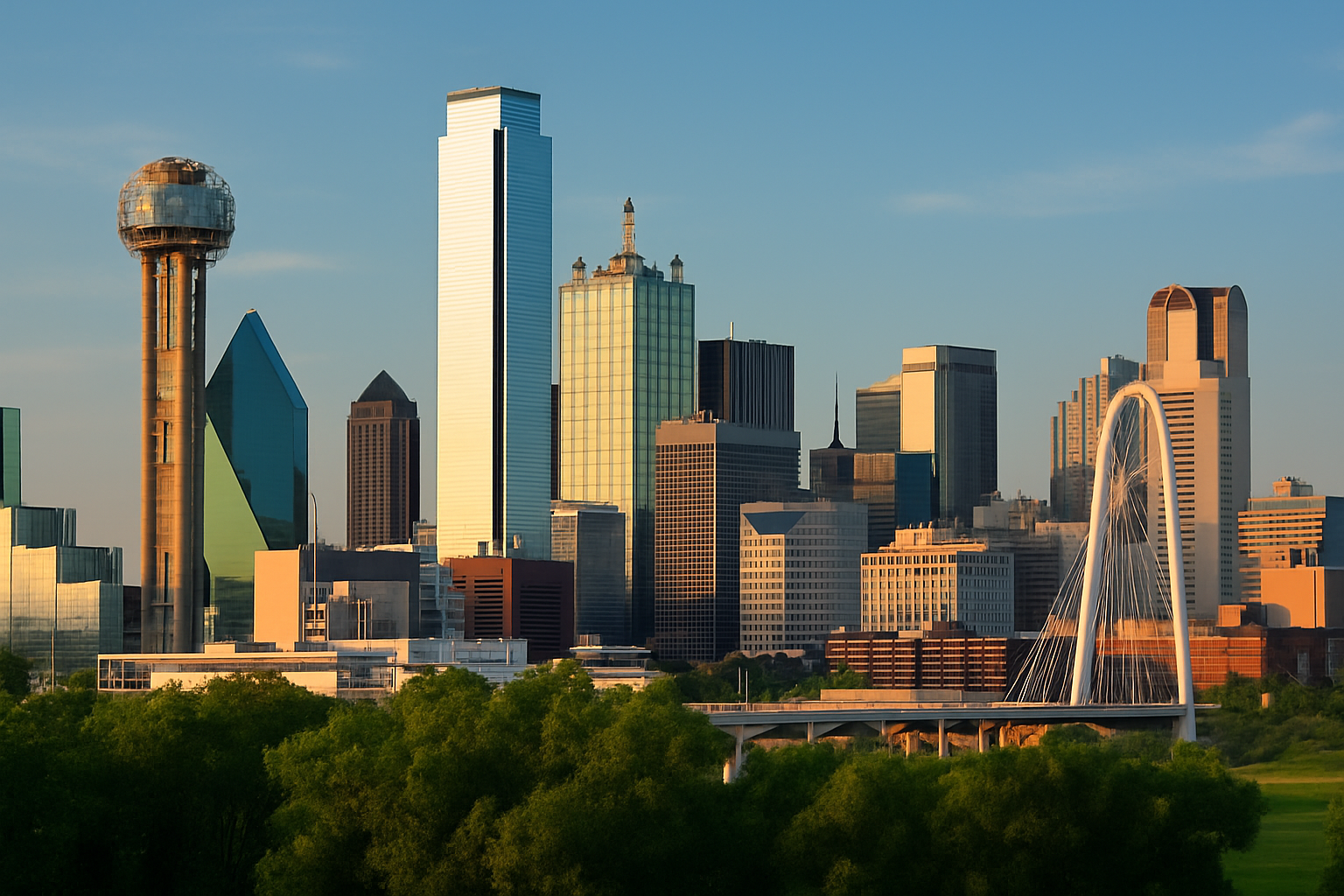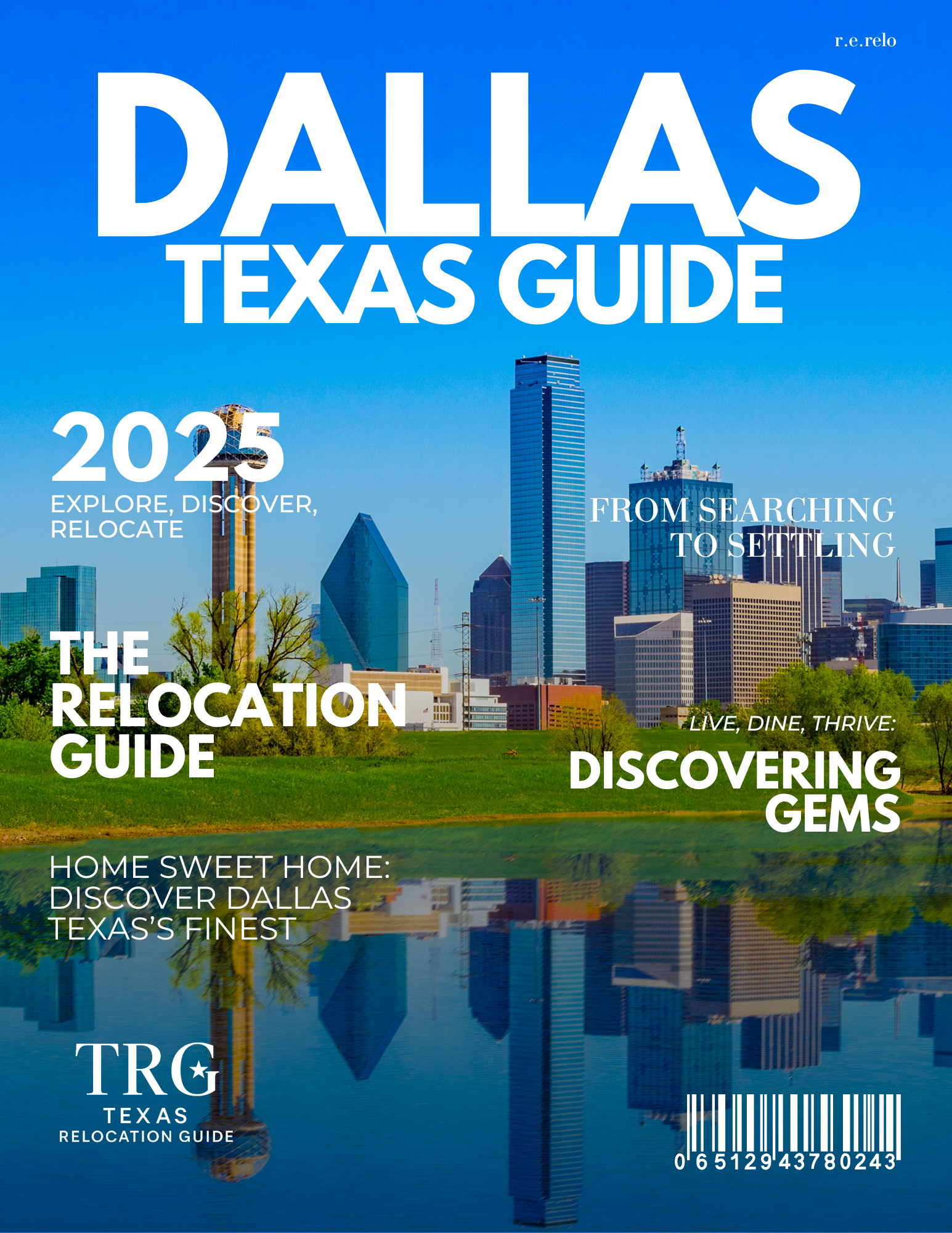8 PROS And CONS Of Living In Dallas Texas 2025 (not what you think!)
8 PROS And CONS Of Living In Dallas Texas 2025 (not what you think!)

Introduction
If you’re thinking about moving to Texas—or already have your sights set on Dallas-Fort Worth—then this 2025 update is for you. I’m not here to run through the same five surface-level points every other blog will list. Instead, I’m breaking down four real pros and four real drawbacks of living in the DFW metro, especially from the lens of someone who has relocated multiple times and understands the trade-offs firsthand.
Let’s dive in.
PRO #1 – All-In-One Suburb Cities
One thing the Dallas-Fort Worth area really excels at—especially compared to other metros in the U.S.—is how complete its suburban towns have become. Historically, suburbs were a trade-off. Sure, you got more space and lower prices, but you gave up walkability, commercial options, and often had to trek into the city for a decent night out. That’s not the case anymore.
In 2025, DFW has developed these intentional, all-inclusive suburban hubs where just about everything you need is within a five-to-six-mile radius. Whether it’s restaurants, shopping, gyms, or schools—it's all right there. And what makes it even better is the abundance of choices. From Plano to Frisco to McKinney, Celina, and Prosper, you’re not locked into just one version of suburban life. There are multiple directions you can go—east, west, or north—and find a spot that checks all the boxes.
The key difference? People aren’t settling for these suburbs out of necessity anymore. They’re choosing them intentionally.
PRO #2 – A 'Living Type' For Everyone
This metro area works for a wide range of people at all stages of life—and that’s rare.
Some cities only make sense for one or two life stages. Think: Sarasota for retirement, Austin for young professionals, or college towns that only serve a student population. But in Dallas, you can grow with the city. Whether you’re a recent college grad, a young couple, a growing family, or even a grandparent who wants to live close to the kids—there’s room for everyone.
There’s a thriving university scene, a strong job market for professionals, highly rated school districts for families, and suburban neighborhoods that make multi-generational living feel natural. Whether you’re drawn to Uptown Dallas, the country-meets-luxury vibe of Rockwall or Lavon, or the affluence of Southlake and Highland Park, you’ll find a fit.
This type of variety lets people actually choose based on lifestyle—not just housing availability.
PRO #3 – Economics and Jobs
Let’s talk economics, because if you’re relocating, job security and opportunity are likely top of mind.
DFW is currently predicted to outpace the national average in job growth by 12%, and that’s across multiple industries—tech, healthcare, finance, you name it. Whether you’re self-employed, need a major headquarters nearby, or want access to coworking hubs, there are options everywhere.
Add to that the fact that DFW is forecasted to be the top commercial real estate market in the country in 2025—and it’s not just rebounding post-pandemic, it’s thriving. With more than 10,000 corporate headquarters, including companies like AT&T, ExxonMobil, Toyota, and Southwest Airlines, it ranks fourth nationally for Fortune 500 companies.
And don’t forget about the centrality of DFW International Airport—making it easy to travel just about anywhere in the country within a few hours.
PRO #4 – Great Schools
Education is a major factor for many families, and this metro delivers.
There are over 130 public school districts in DFW alone, giving families more choices than most metro areas offer. Out of more than 1,200 total school districts in Texas, 9 of the top 20 are located in the DFW area. And four high schools rank among the top 100 in the nation.
From public to charter, prep to Montessori, the diversity of educational options here is impressive. And what really stands out is how often you can match a great house with a great school without having to compromise on one or the other.
CON #1 – Really Spread Out
Let’s talk trade-offs. One of DFW’s biggest strengths—its variety of towns and lifestyles—is also one of its challenges.
The metro sprawls over 9,200+ square miles, which means when you choose a place like Plano, you’re really committing to Plano. You’re not casually popping into Rockwall or downtown Dallas every other day. Most people live, work, and socialize in the same general area.
If you choose the right spot, you may never need to leave. But just know—it’s a commitment, not a sampler platter.
CON #2 – Outdoor/Nature Living Scarcity
Dallas does have beautiful areas and parks—think Katy Trail or White Rock Lake—but overall, nature is not the main draw here.
The region has a more functional, planned feel to it. You’re not getting the same blended aesthetic of nature-meets-urban like you might in Austin or places like Tampa’s Riverwalk. Dallas tends to prioritize practicality—business districts, stadiums, commercial development—over organic green space.
That doesn’t mean nature is nonexistent, but if it’s central to your lifestyle, it may feel like something’s missing.
CON #3 – Weather Volatility
I’m not going to harp on heat and traffic like every other blog. But what is worth noting is the volatility of DFW weather.
It can be 45 degrees in the morning and 90 by afternoon. You’ll experience snow, tornados, and 106-degree summers—all in t
he same year. It’s not that the weather is “bad,” but if you’re seeking consistency, especially in retirement, that might be a challenge. If you’re working full time and busy with kids, you may not notice it as much.
But if you’re planning to spend a lot of time outdoors or looking for lifestyle reliability, the constant change might be a drawback.
CON #4 – Landlocked
This one’s simple but real: Dallas is landlocked.
Now, that might not matter at first. You may think, “I’m not moving for the beach.” But many people relocating to Texas are also considering Florida or the Carolinas, and coastal access becomes part of the equation. If you’re used to weekend trips to the coast, Dallas isn’t going to give you that.
Sure, you can fly out of DFW and be in Tampa or Sarasota in under two hours—but if being near the ocean is a core lifestyle value, this is something to seriously consider before committing to a landlocked metro.
Final Thoughts
So there you have it—8 real pros and cons of living in the Dallas-Fort Worth area in 2025. Some of these points might not be what you expected, but that’s kind of the point. Moving across the country is a major decision, and hopefully this breakdown helps give you some clarity.
If you’re considering Dallas now or even years from now and want help buying, selling, or investing, feel free to reach out. I also offer a free 2025 DFW relocation guide that goes deeper on neighborhoods, restaurants, and more—and a 30-day email list that gives you real-time updates, builder incentives, and more behind-the-scenes insights.
Until next time, thanks for reading!
LIke Free stuff?
Texas guides, tools & more!
The absolute SMARTEST way to relocate and/or invest in the entire state of Texas. We create an abundance of original, value-based and economics-first resources to equip our clients for the real estate market ahead. Smarter buyers are more savvy buyers!

Lone Star State Company
Ready to take the next step?
Let's schedule a meting! During this initial consultation, we'll learn more about your situation and what you're seeking in a home. We'll provide advice and address any concerns you may have, in order to determine the best approach to achieving your goals. By the end of our conversation, we'll have a solid plan of action and next steps for moving forward.



